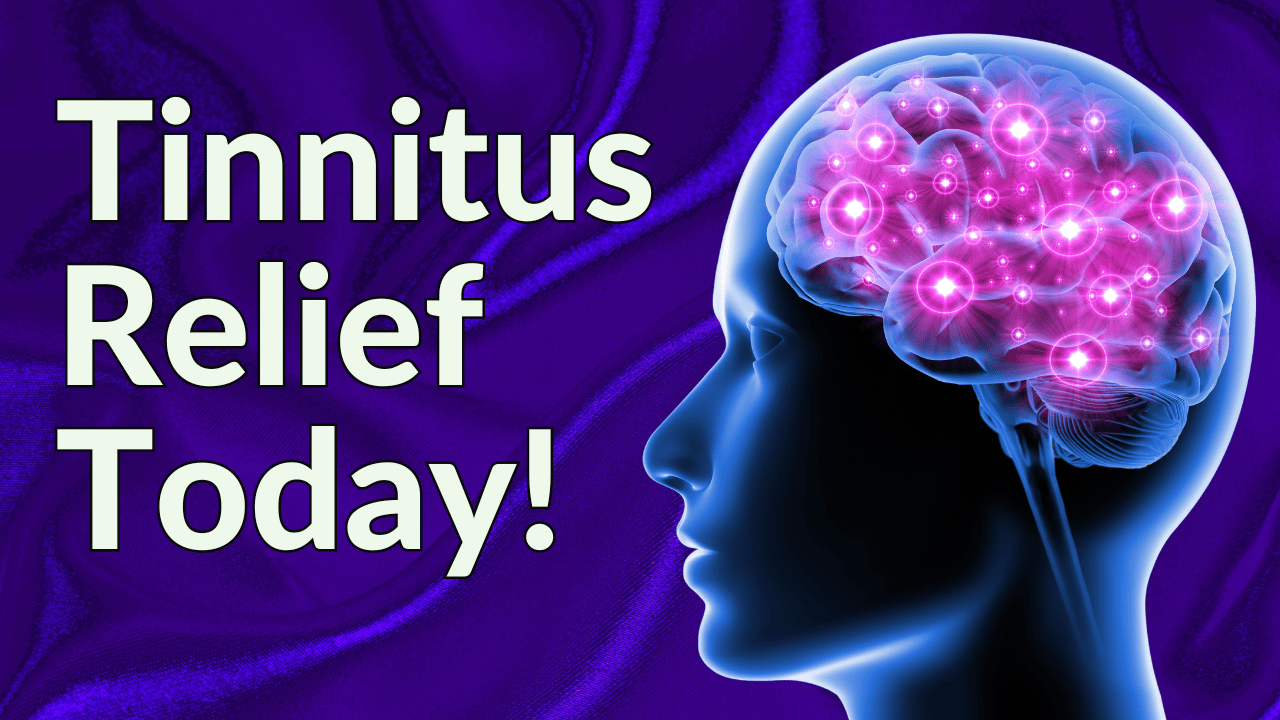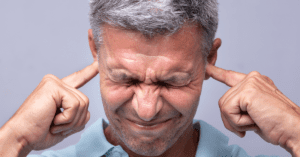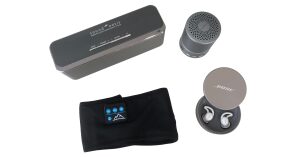Auditory Processing Disorder (APD) refers to difficulty with auditory processing, or taking in and subsequently discerning auditory stimuli. The disorder is often misunderstood or confused for other disorders or conditions, including hearing loss. So what exactly is APD and how does it impact hearing and auditory function? First, let’s define the disorder itself, and determine how it is different from other hearing disorders.
What Is Auditory Processing Disorder (APD)?
Auditory Processing Disorder is a type of central auditory processing disorder that focuses on the way auditory stimuli is taken in and discerned. This means that hearing itself–i.e. the function of the outer, middle ear or inner ear–is not impaired, but that the processing and understanding of what is being taken in is distorted or muddled. The disorder is also sometimes called central auditory processing disorder, or CAPD, because it involves auditory processing at the auditory cortex, or the portion of the brain responsible for auditory discrimination.
"Treble Health helped me reduce my tinnitus by about 80%, and now I can live my life again!"


"Treble Health helped me reduce my tinnitus by about 80%, and now I can live my life again!"
– Steve D.
Book a free consultation to learn which Treble Health solution is right for you. Join Steve and thousands more who have found lasting tinnitus relief.
Despite the challenges in hearing that occur with auditory processing disorder, this disorder is not a type of hearing loss. Auditory discrimination and the roots of hearing loss are different, as they typically stem from different parts of the auditory system. Many instances of hearing loss, for example, involve infection, age, and other disorders of the outer, middle, and inner ear that are not always directly related to auditory processing abilities.
Essentially, APD is a matter of having auditory processing difficulties, which means that the brain has difficulty interpreting the information being taken in by the auditory system. APD affects the auditory cortex and is a distinct disorder that must exist on its own to qualify for testing and diagnosis, however diagnosis can be difficult because it can often be confused with other conditions associated with auditory and speech or language difficulty. APD can affect people of all ages and backgrounds, but may be more prevalent in people who have an existing disorder, such as Autism Spectrum Disorder (ASD), Attention Deficit Hyperactivity Disorder (ADHD), or developmental disorders. These disorders can disqualify an individual from testing, as the evaluation requires many tests over a span of few hours requiring attention and effort from the patient.
What Are the Symptoms Of APD?



The symptoms of APD can initially mimic other issues, and auditory processing is not always recognized or suspected. The most common indicators of both auditory processing disorders as a whole and APD in particular include:
- Difficulty hearing background noise
- Difficulty with clarity of speech
- Difficulty following multi-step directions provided audibly
- Difficulty summarizing auditory information
- Difficulty sitting through long lectures without visual cues
- Easily distracted by loud noises
- Difficulty understanding complex thought processes
- Delayed understanding of jokes
Although these are not the only symptoms of central auditory processing disorder, these are the standard symptoms through which to have an auditory processing disorder diagnosed. It is important to note that the symptoms listed above can have other roots, including cochlear damage or malfunction and other disorders or delays involving attention, memory, learning, and similar functions. Audiologists are currently considered the best professionals to evaluate for Auditory Processing Disorder, though some physicians such as ENTs or PCPs may be able to pinpoint some of the concerns associated with the disorder to then refer out to specialist teams.
Who Does APD Affect?
APD can affect both adults and children, and because auditory processing skills are ineffective in APD rather than hearing ability, APD is primarily thought to affect those who are considered to have normal hearing – though there are some instances in which hearing loss can be present alongside APD. Hearing loss and other hearing disorders are diagnosed separately from APD, because those hearing difficulties are rooted in issues of the outer, middle, and/or inner ear, age, noise-exposure, or other concerns, rather than auditory processing.
The American Academy of Audiology states, “To properly diagnose APD, special tests need to be administered by an audiologist. Individuals with APD usually pass standard hearing tests because standard hearing tests are designed to test the quietest sounds one can hear. APD may be present with or without hearing loss”
In order to be tested for APD, an individual must be at least seven years old and cannot have an existing developmental diagnosis due to demands of the evaluation, meaning that APD is not documented in greater frequency in those who have developmental disorders. In adults, some studies have suggested that neurological disorders such as stroke, degenerative diseases, tumors, and trauma can all contribute to the onset of APD past childhood. In childhood, chronic ear infections, traumatic birth, seizure disorders, meningitis, and lead poisoning may contribute to greater risk. Taking a thorough medical history can further inform audiological teams of the likelihood of APD.
Auditory perception is the cornerstone of this disorder, and in order to make an accurate and fair diagnosis, it is important to make a distinction between APD and the subtle differences that can be found with other processing disorders. It is for this reason that audiologists are the ideal source through which to receive a diagnosis. Traditional hearing tests cannot identify APD, but an audiologic evaluation is the first step in reaching a diagnosis prior to the series of specific APD tests that are administered to assess the different areas of the auditory system. Only about 3-4 percent of the population truly have APD – making it a rare diagnosis which is still not always fully understood.
Is APD Related To Tinnitus?
Symptoms of auditory processing disorder and tinnitus can coincide, and both can be exacerbated by noisy environments, but the two are not the same disorders and typically require different diagnosis pathways. Tinnitus involves phantom sound, while APD involves the scrambling of auditory stimuli. APD is largely diagnosed in populations with normal hearing ability, though there can be some overlap with APD and hearing loss, while tinnitus is frequently associated with hearing loss. Both can be found in populations with head trauma and other neurological concerns, in which case it is possible an individual may be diagnosed with both.
Does APD Cause Tinnitus?
No, auditory processing disorder does not cause tinnitus, but they do have some overlapping symptoms in auditory areas; namely, difficulty processing information taken in by the auditory system. Disruptions in auditory processing can be associated with tinnitus, as tinnitus involves the sensation of phantom sound, or ringing, rushing, or buzzing with no external cause or source. The precise cause of tinnitus is not fully known or understood; instead, there are a myriad of possible sources of tinnitus symptom onset. People with normal hearing ability may experience “hidden” hearing loss, or hearing loss that results in the disruption of cochlear information being received and properly processed.
Differences Between Auditory Processing Disorder and Tinnitus
Auditory Processing Disorder may have similar sounds when compared to tinnitus, but the two conditions have several important and notable differences. These include:
- Comorbidities. APD precludes the diagnosis of other learning disabilities and developmental conditions, including Autism Spectrum Disorder and Attention Deficit Hyperactivity Disorder. Tinnitus does not have these same limitations, and can be diagnosed in school aged children and adults alike who also may have a language disorder, specific language impairment, learning disability or other learning difficulties and disorders.
- Risk factors. The risk factors of APD include early childhood issues such as lead poisoning, brain lesions, preterm birth, and more. There are also numerous risk factors currently associated with tinnitus, including chronic ear infections, head trauma, loud noise exposure, and more. The risk factors, as you can see, differ significantly between the two disorders.
- Treatment protocols. While tinnitus and APD may seem to have similar symptoms, the language problems associated with APD often do not impact tinnitus patients, and other kids who hear phantom sounds but understand speech appropriately. APD is often considered a specific learning disability that requires environmental modifications, spoken language skill acquisition, visual cues, and other forms of remediation to help shore up the auditory deficit experienced in this disorder. Speech therapy may be involved, and speech language pathologists are frequently on the overall treatment team–a stark difference from tinnitus treatment protocols.
Although both APD and tinnitus have been viewed as auditory perceptual disorders, APD is the only true auditory processing disorder, as tinnitus may have root causes in middle and inner ear damage, and is unlikely to respond to auditory training and auditory processing skills to ease symptoms.
How Is APD Treated?
There is not one specific treatment for central auditory processing disorders; instead, auditory processing is targeted through a series of accommodations and interventions. For school aged children, accommodations might include preferential seating, note takers for classroom work to provide written instructions in the place of spoken words and spoken instructions, low-gain amplification/FM systems to change noise ratios, and auditory training.



To diagnose APD, a very specific set of diagnostic criteria must be fulfilled. Adults and children diagnosed with APD can then visit with a speech language pathologist to begin developing a treatment or accommodation plan. Early diagnosis can often prove the most beneficial, as it allows those with the disorder to begin developing coping mechanisms and accommodations. Nevertheless, because there is not a specific treatment plan that has achieved widespread use, treatment varies from place to place and case to case.
The Basics of Auditory Processing Disorder
From lead poisoning to seizure disorders, the precise origin of APD has not yet been determined. A systematic review of the prevalence of the disorder suggests the possibility of prenatal or childhood traumas as precursors to APD development and the inability to or difficulty with discerning separate sounds. Despite the amount that is still unknown about the disorder, there are treatment protocols that can be used to help disseminate auditory information and target the information being interpreted by the central nervous system, to help people with APD more effectively process auditory stimuli.
Central auditory disorders like APD can be addressed by speech language pathologists, audiologists, and others in this sphere, in order to help those with auditory processing disorders better interpret sounds and carry out day-to-day functions, including appropriate social engagement and effective communication. Interventions to help clear background noise and auditory processing are currently the best treatments available for an auditory processing disorder, and these therapies and accommodations can mean the difference between social and academic difficulties and social and academic success.
Next Step: Book Free Consultation
- 75% of patients reduced their tinnitus within three months after following our recommendations.
- "I feel like Treble Health literally gave me my life back." - Randy S. (verified customer)
- Join thousands of people who have reduced their tinnitus after scheduling a free consultation.


















